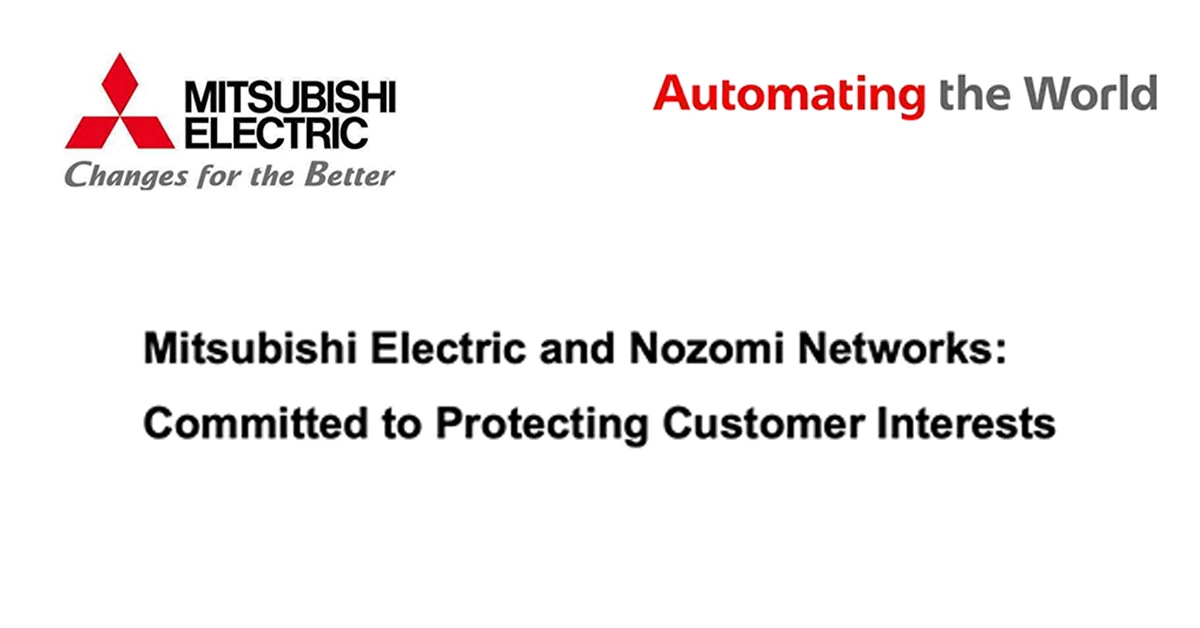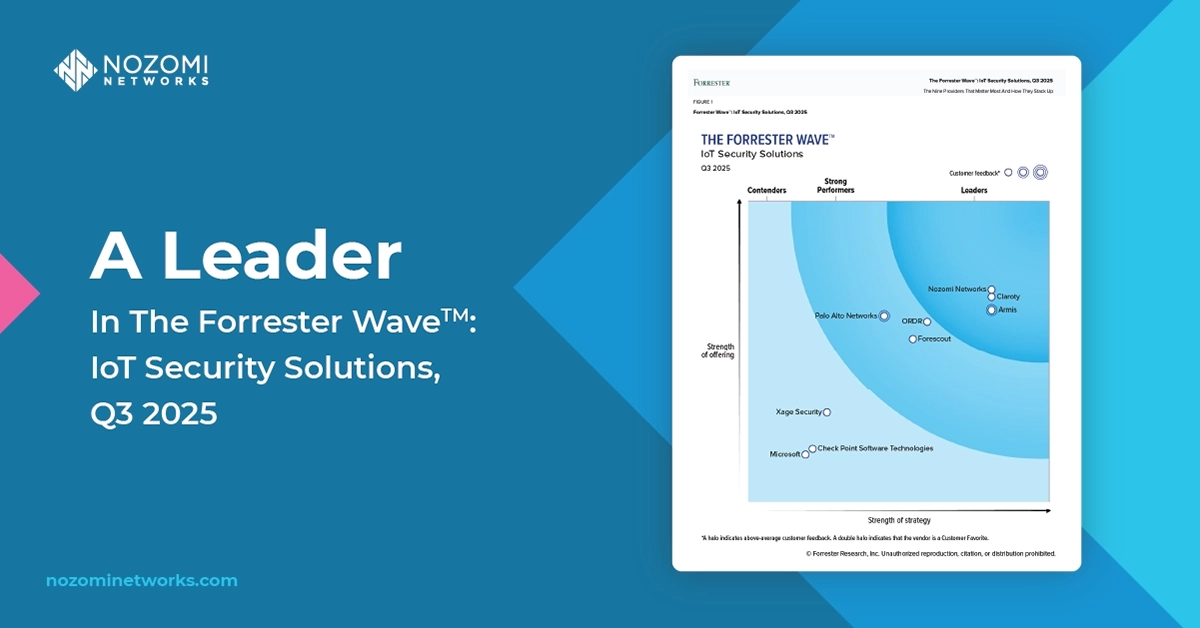I read Dale Peterson’s recent blog “My OT Security Vendor Was Acquired … What Should I Do?” with interest. While I value Dale’s longstanding contributions to the OT security community, I believe his framing of vendor acquisitions misses a critical distinction — one that matters deeply for asset owners evaluating the recently announced Mitsubishi Electric acquisition of Nozomi Networks.
Technology Acquisitions vs. Buying Vibrant Businesses
Most of the examples Dale cites — and many acquisitions people instinctively think of — are technology acquisitions. These are scenarios where a large company acquires an early-stage vendor primarily for its technology, with the expectation that future investment will be required to reach market scale. Too often, that continued investment doesn’t materialize, and the acquired business fades.
Nozomi Networks is in a fundamentally different category. Nozomi and Mitsubishi Electric announced that Mitsubishi Electric is buying a healthy business that will continue to operate independently as a wholly owned subsidiary of Mitsubishi Electric. With this approach, Mitsubishi Electric is acquiring Nozomi not simply for our technology, but for our established and growing market position, strong customer base, and proven revenue stream. This is not an early-stage bet. It is the recognition of a scaled, self-sustaining leader in OT and IoT cybersecurity.
The Scale and Financial Health Factor
A crucial fact that Dale’s piece didn’t cover: Nozomi Networks is already cash-flow break-even — a milestone we achieved and have maintained since last year. We are the only company in the OT/IoT security sector operating at break even.
Other vendors in this space remain in the “burning-money” stage, reliant on continued venture or private equity funding, and therefore inherently higher-risk for their customers. Nozomi, by contrast, has demonstrated not just technical innovation but operational maturity and financial stability. That’s a powerful safeguard for customers and partners who depend on our long-term continuity.
A Tale of Two Cisco Acquisitions
Consider two examples from Cisco’s history of acquisitions:
- IronPort (2007) – a classic technology acquisition. Cisco bought IronPort for its email security technology, but without ongoing investment to scale the business, the acquisition failed to achieve its promise.
- Splunk (2023) – by contrast, Cisco’s acquisition of Splunk was about buying a strong and growing business. Splunk was already a large, self-sustaining company with strong cash flow. Cisco bought into a proven, scaled platform that could stand on its own.
The difference? IronPort needed to be carried; Splunk was already walking on its own. In comparison, Nozomi Networks is much more like Splunk than IronPort.
Strategies for Acquiring Healthy Businesses
It’s also important to recognize how strategic acquisitions of healthy businesses typically treat said acquisitions. The model is clear: when the acquired company is already a scaled, profitable business, the acquirer usually maintains independence and focus — because that’s what preserves and scales value the best.
Two examples make this point:
- VMware – Despite being owned by multiple acquirers over the years, VMware consistently retained its focus and functioned as a standalone, agnostic business.
- Aveva and Schneider Electric – In OT and industrial software specifically, Schneider Electric’s acquisition of Aveva underscored how critical it is for Aveva to operate independently and in an agnostic way, serving a wide customer base.
These examples illustrate the pattern: business acquisitions preserve independence because the business itself is the asset. Nozomi Networks sits squarely in this category.
Why Suggesting Alternatives Is Misleading
In this light, suggesting that asset owners who are acquiring a new solution should pre-emptively look at alternatives because of our acquisition is, at best, incomplete — and at worst, irresponsible. The Mitsubishi Electric acquisition is not about rolling the dice on a technology and hoping for follow-through. It is about recognizing the unique position Nozomi has already built:
- A global customer base across critical infrastructure sectors
- Mature operations and proven profitability
- Market-leading innovation with a strong roadmap
When customers are considering the long-term viability of Nozomi Networks vs. alternative vendors, this acquisition should give them confidence, not concern.
Closing Thoughts
Not all acquisitions are created equal. When you analyze them through the lens of business fundamentals — scale, revenue health, cash flow, and the typical behavior of business acquirers — it becomes clear that the Mitsubishi Electric acquisition of Nozomi Networks is a validation of our success, not a threat to customer stability.
Far from being a reason to hedge bets, it is a signal that customers can rely on Nozomi now more than ever before. Not only do we have a financially strong and growing business, but once the acquisition closes, we’ll be backed by a company with more than a century of business success and stability.










